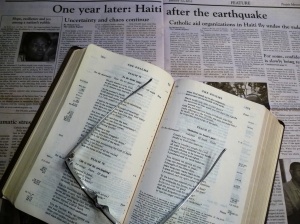Have you ever noticed how often the “Law of God” is fondly spoken about in the Psalms? For instance Psalm 19:7 reads; “The law of the LORD is perfect, reviving the soul. The statutes of the LORD are trustworthy, making wise the simple.” Or Psalm 119:97 “Oh, how I love your law! I meditate on it all day long.”
Another way to translate “Law” as it appears in Hebrew is “Torah” which is “Instruction”. Psalm 119:97 would read something like, “Oh how I love your Instruction! I meditate on it all day long.” We all know the great sense of awe when we feel God is speaking to us, or perhaps when we receive fresh revelation or understanding in the Word, it becomes life giving instruction for us, guiding our steps and lighting our path. This kind of instruction is life giving, like when a Parent or trusted leader gives sound advice and we feel a weight that we were carrying lifted from our shoulders.
This life giving law of God has application for personal development but also for nations. David the greatest king of Israel loved the law of God because it provided him the blue print of how to live and how to guide the nation to which he was king.
I like to think of the law of God like a set of blueprints that were divinely given to Israel, detailing how to live in this fallen world. When they followed the plum line of God’s law (Amos 7:7-8), Israel prospered, when they departed from the law the nation fell into hard times.
This blueprint of God’s law was the “truth”, the truth of how to live and how to prosper as a people. It revealed reality to the people saying, “this is the way walk in it”, (Isaiah 30:21).
Very interestingly nations that are founded on God’s law and built upon a Christian foundation are shown to be the least corrupt of all nations globally, reported by a global corruption watch dog.
A study conducted by the Chinese Academy of Social Science was given the task of determining the cause of the pre-eminence of the west. They studied first our military thinking that it was the source of the west’s success, then the political system (democracy) and finally our economic system. But after twenty years of study the conclusion was made that the source of the west’s success was Christianity, here’s the quote from the head of the study;
“But in the past twenty years, we have realized that the heart of your culture is your religion: Christianity. That is why the West is so powerful. The Christian moral foundation of social and cultural life was what made possible the emergence of capitalism and then the successful transition to democratic politics. We don’t have any doubt about this.”
What a shining example of the power of Gods laws to bless a nation, as it says in Deut 4:5-8
“See, I have taught you decrees and laws as the Lord my God commanded me, so that you may follow them in the land you are entering to take possession of it. 6 Observe them carefully, for this will show your wisdom and understanding to the nations, who will hear about all these decrees and say, “Surely this great nation is a wise and understanding people.” What other nation is so great as to have their gods near them the way the Lord our God is near us whenever we pray to him? 8 And what other nation is so great as to have such righteous decrees and laws as this body of laws I am setting before you today?”
Looking at the rise and fall of the various systems of man over the 20th century is like watching a contractor building a house but refusing to follow the design plans, the blueprints of how to build correctly on plum; Socialism, Communism, Dictatorships, and now the crumbling we are witnessing of Western Materialism. If we deny Gods law we are denying reality and attempting to build a house but without the plum line and plans to do so.
Psalm 127:1 “Unless the LORD builds the house, its builders labor in vain. Unless the LORD watches over the city, the watchmen stand guard in vain.”
Similarly Jesus gave the parable of the man building his house upon the rock and the man building upon the sand in Matt 7:24, when we deny Gods law, his instruction, what we build will not stand in the storms that life brings and the storms that nations must face. Wall Street built upon sand when it became immoral and denied Gods law and it crashed the same as the house in Jesus’ parable.
God warned the people in Ex 20:2-3 the consequences of not following his law, that ultimately it would lead them back into the slavery in which he set them free from, it would eventually lead to living under oppression and tyranny.
If we think that we can continue indefinitely living in our empire of relativism and humanism we are denying Gods law and building upon that which cannot last and we to, like the people of Israel will find ourselves living under an oppressive regime and tyranny.
God’s law is what was going to sustain the fruitfullness of the land that the people of Israel were getting set to occupy in Deut 8, He kept them in the desert for 40 years to teach them “that man does not live on bread alone but on every word that comes from the mouth of the LORD.” The fruitfulness of nations is determined by “building to code” as they on construction sites, building following His instruction.
As we pray for government, pray from the blueprint of Gods law, that we would not depart from it, that He would have grace and call us back to it and indeed that He would be the very life giving bread that our nation and the nations need to survive. If Canada is to be a breadbasket of the nations, let it be the bread that sustains the soul and brings true prosperity to the land and people – the law of God.





You must be logged in to post a comment.